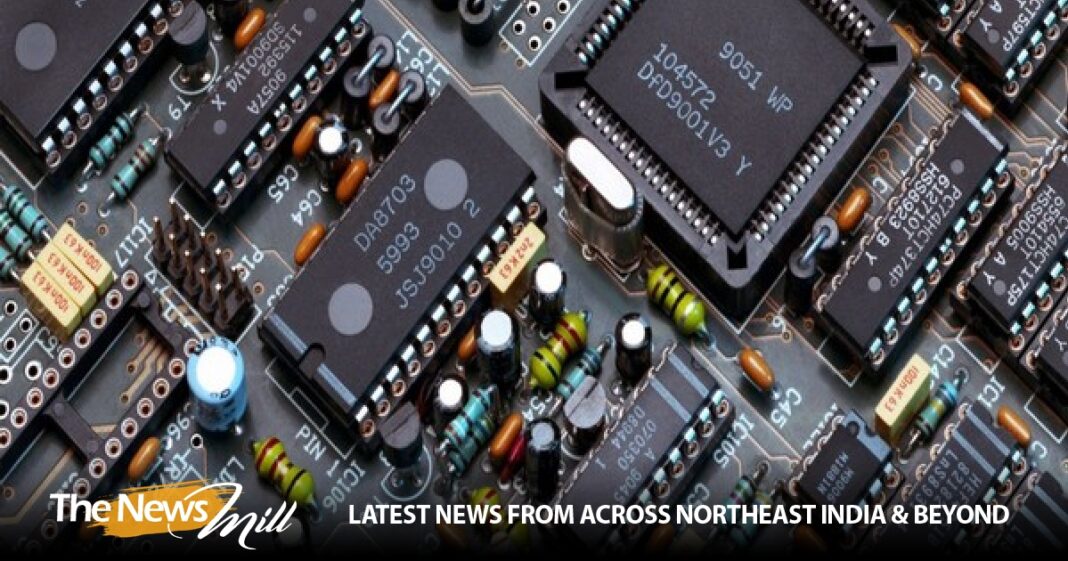As political pressure on the iPhone maker over the agreement increases, US senators have ordered the intelligence agency to investigate the threat that a potential agreement between Apple and the Chinese chipmaker Yangtze Memory Technologies Co. poses to national security. Just days after it was reported that Apple was considering purchasing memory chips from YMTC for the new iPhone 14, the Democratic chair of the Senate intelligence committee, Mark Warner, and the Republican vice chair, Marco Rubio, wrote to the director of national intelligence, Avril Haines, requesting a review. Under the state-owned chipmaker Tsinghua Unigroup, YMTC was founded in 2016. It is said that Beijing’s significant subsidies helped it grow quickly. According to U.K. research firm Omdia, YMTC’s share of the global NAND flash memory market increased from 0.6% in 2020 to 2.3% in 2021. In July, Schumer and Senator Mark Warner (the Democrat who is the chair of the Senate intelligence committee) joined a bipartisan group of senators asking the Biden administration to place YMTC on the Entity List.
The Trump administration’s punishment for Huawei was being added to the Commerce Department’s Entity List, which bars the company from accessing its U.S. supply chain, including Google. The organization demanded that President Biden include YMTC on the list for providing Huawei with memory chips. That is a violation of the updated 2020 U.S. export control regulations designed to stop Huawei from acquiring cutting-edge processors made with American technology.
The senators stated in their letter, “We write to express our grave concern on the prospect that Apple Inc. would soon purchase 3D Nand memory chips from Yangtze Memory Technologies Co. The letter cautions that such a relationship “would affirm and reward [China’s] distortionary and unfair trade practices, which damage U.S. businesses abroad by giving Chinese corporations enormous benefits at the expense of foreign competitors.” “We cannot allow Chinese companies beholden to the Communist Party into our telecommunications networks and millions of Americans’ iPhones,” Rubio was quoted as saying.
Given YMTC’s broad but frequently ambiguous ties to the Chinese Communist party, a decision like this would create serious privacy and security risks in the global digital supply chain that Apple helps to develop.
Huawei, the contentious Chinese telecoms equipment giant, received memory chips from YMTC for at least two phones, including its flagship foldable Mate Xs 2. This could be a violation of a US export restriction that forbids businesses from giving Huawei products made using American technology.
Because American chip design software and production equipment are so common in all semiconductor supply chains, government and industry analysts presume that all Chinese chipmakers employ US technology.
Apple reportedly said that it was “considering” sourcing certain iPhones in China from YMTC. Apple on Thursday declined to comment on the letter to Haines, which was also signed by Texas Republican John Cornyn and Democratic Senate Majority Leader Chuck Schumer.
The senators asked Haines to assess the dangers to the economy and national security that a merger between Apple and YMTC might bring. They requested that she investigate the ways in which the Chinese Communist Party uses YMTC to support its native chip industry and oust semiconductor producers from the US and allies. They also asked for a review of YMTC’s suspected assistance in Huawei and other Chinese firms evading US sanctions.
Many Chinese technology companies have come under increased scrutiny in Washington, including YMTC. The US must reconsider its long-held belief that it must maintain a “relative” advantage over rivals, according to national security adviser Jake Sullivan. This includes the chip industry, where the US “previously maintained a ‘sliding scale’ approach that said we need to stay only a couple of generations ahead,” he said.
According to Sullivan, “that is not the strategic situation we are in right now.” SCSP is a think tank devoted to advancing US technology in crucial domains. We need to keep as big a lead as we can because some technologies, like cutting-edge logic and memory chips, are fundamental.
In an effort to hinder China’s efforts to develop its domestic sector, the US Commerce Department is working on a number of steps that would make it more difficult to export some chip-related technologies to that country. China too sees dependency on the US as a weakness and has an ambitious target to manufacture 70 percent of its semiconductors domestically by 2025. China has set goals to achieve “complete modernization” based on “informatization,” “intelligence,” and “mechanization” by the People’s Liberation Army’s 100th anniversary in 2027. Breakthroughs in AI, quantum computing, and hypersonics all require the assistance of advanced chips. Only sanctioning Chinese firms will not prevent China from advancing in advanced process chips, which will eventually help its military buildup. More efforts are needed.

